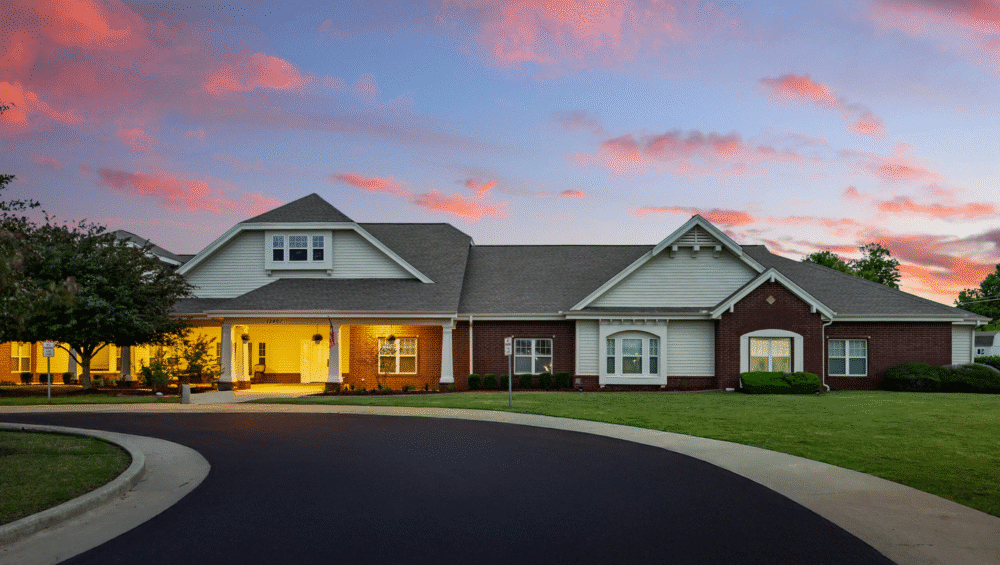Memory Care Facilities Near Me: How to Find Safe and Supportive Memory Care Services at Dorset Place
In today’s aging society, finding appropriate care for loved ones with memory loss is a pressing challenge. Memory care facilities offer specialized services for individuals with Alzheimer’s disease, dementia, and other cognitive impairments. These facilities differ from assisted living or nursing homes by providing personalized care that addresses unique behavioral, emotional, and physical needs. Families not only seek safety and dignity for their loved ones but also environments that promote , social engagement, and overall well-being.
This article provides guidance on choosing memory care facilities near you by outlining essential features, conditions treated, differences from other senior care options, and cost and payment considerations. It also highlights innovative practices in and offers tips for families supporting a loved one with memory loss at home.
The following sections answer common questions about care services, explore the benefits of specialized programs, and provide practical advice for preparing for a transition to memory care. This information is designed to help families identify high-quality memory care facilities in their local area.
What Are Memory Care Facilities and Who Needs Them?
Memory care facilities are specialized residential centers designed to support individuals with memory impairments, including Alzheimer’s disease, dementia, and other neurodegenerative conditions. These facilities are intended for residents who require assistance with activities of daily living and need a safe, structured, and clinically supportive environment. By blending aspects of assisted living with medical oversight, memory care facilities offer programs that enhance quality of life while aiming to .
What Conditions Do Memory Care Facilities Support?
These facilities help residents dealing with Alzheimer’s disease, vascular dementia, dementia with Lewy bodies, and frontotemporal dementia, among other disorders. Common symptoms such as disorientation, agitation, mood swings, and impaired decision-making are managed through personalized treatment plans, therapeutic activities, and environmental modifications. The structured routines and close monitoring offered are essential for individuals whose conditions affect daily functioning.
How Is Memory Care Different From Assisted Living or Nursing Homes?
Unlike assisted living facilities, which provide general support, or nursing homes that focus on extensive medical care, memory care units specifically address the challenges of cognitive impairment. They feature secured environments with locked doors, simplified layouts to reduce wandering, and staff trained in dementia care and behavioral interventions. Programs often include cognitive stimulation, reminiscence activities, and sensory therapies that are more focused than those available in non- care settings.
What Are the Key Features of Memory Care Programs?
Memory care programs typically include: • 24-hour staffing by caregivers experienced in neuropsychiatry and dementia care • Secure, accessible environments designed to prevent wandering • Cognitive and physical rehabilitation programs • Personalized care plans to boost memory retention and reduce anxiety • Technology integration such as sensor-based monitoring and digital family updates • Nutritional planning, medication management, and therapeutic activities that foster social engagement
These combined features aim to improve quality of life while reducing the rate of .
How to Choose the Best Memory Care Near Me?
Selecting the right facility requires evaluating clinical expertise, safety, and the overall ambiance. Families should local facilities, confirm state certifications, and read reviews from others who have experienced similar transitions. The decision should consider both the clinical and emotional needs of the resident as well as the operational standards of the facility.
What Should You Look for in a Memory Care Facility?
Key factors include: • A secure environment with well-designed layouts and secured exits • Comprehensive care plans reviewed regularly by a physician or qualified caregiver • Well-trained staff skilled in cognitive impairment care • Transparent information regarding daily routines and caregiver-to-resident ratios • Opportunities to tour the facility to assess emotional ambiance and effectiveness • Positive , testimonials, and accreditation from reputable organizations
These features help ensure that the facility meets both clinical and personal care requirements.
How Do Personalized Memory Care Programs Improve Resident Well-Being?
By tailoring interventions to individual needs, personalized memory care programs create customized care plans based on thorough assessments of cognitive abilities, physical health, and personal preferences. Integrating therapies such as cognitive stimulation, music and art therapy, and physical exercise, these programs help improve memory, reduce agitation, and promote emotional stability. Regular adjustments to the care plan help maintain residents’ dignity and quality of life while potentially reducing hospitalizations.
Why Is a Safe and Secure Environment Critical in Memory Care?
Due to common challenges like disorientation and wandering, a secure environment is vital. Facilities are designed with features including secure entry points, perceptible layouts, soft flooring, rounded furniture, and adequate lighting to reduce injury risk. This not only ensures physical safety but also provides emotional reassurance to both residents and their families by offering predictable and stable surroundings.
What Are the Costs and Payment Options for Memory Care?
Memory care generally comes with higher fees compared to traditional assisted living because of the specialized services and secure settings provided. Costs typically reflect the level of care, facility location, and included amenities. Families should consider monthly fees alongside additional charges for medications, specialized therapies, and activities. A transparent breakdown of services and pricing is crucial for making financial decisions.
How Much Do Memory Care Facilities Typically Cost?
In the United States, memory care fees typically range from about $4,000 to $7,000 per month, though costs may be higher in metropolitan areas. These fees often cover room and board, daily care, and participation in specialized programs; however, additional services such as advanced therapies or transportation may incur extra charges. A detailed cost breakdown helps families compare facilities and decide based on specific healthcare needs and budget constraints.
What Financial Assistance or Insurance Options Are Available?
To help manage costs, families can explore various financial assistance options. Medicaid and Medicare Advantage plans may cover some aspects of memory care, though eligibility and coverage vary by state. Long-term care insurance, veterans’ benefits, reverse mortgages, and specialized financial planning services for elder care are additional resources. Many facilities also offer flexible payment plans, and discussing options with a financial advisor or elder care specialist can help manage long-term expenses.
How to Plan for Long-Term Memory Care Expenses?
Effective long-term planning involves assessing future care needs and developing a detailed financial strategy. Families should gather essential documentation such as medical records, insurance policies, and financial statements to estimate expected costs. Creating a realistic budget that accounts for rising care expenses and potential changes in health status is vital. Consulting with a experienced in elder care can also help explore investment options, government assistance, and alternative financing solutions.
How Does Dorset Place Memory Care Support Families and Residents?
Dorset Place is recognized for its commitment to compassionate, comprehensive support for both residents and their families. By integrating clinical excellence with emotional and social support, Dorset Place ensures that care is personalized according to the progression of cognitive impairments. The facility uses innovative practices and a multidisciplinary approach to continually train staff in best practices, thereby creating an environment where safety, dignity, and personalized attention are prioritized.
What Family Resources and Support Services Are Offered?
Dorset Place offers numerous support services for families, including: • Educational seminars on dementia progression and effective caregiving strategies • Support groups for shared experiences and practical advice • On-site counseling and family liaison services that provide regular updates on resident well-being
These services help ease the emotional and logistical burden on families and improve overall care outcomes.
How Does Staff Training Enhance Memory Care Quality?
Regular training sessions focusing on neuropsychology, behavioral interventions, and crisis management ensure that caregivers remain up to date with the latest memory care practices. This ongoing professional development fosters an empathetic and responsive environment, which enhances the quality of interactions between staff and residents, and ensures family communication is clear and supportive.
What Are the Benefits of Community and Social Engagement in Memory Care?
Social activities like art therapy sessions, music programs, and communal dining play a significant role in boosting residents’ cognitive stimulation and overall well-being. These engagements help foster a sense of belonging and reduce feelings of isolation while potentially slowing cognitive decline and improving mood.
Where Are Memory Care Facilities Located Near Me?
Finding a quality locally requires a systematic approach. Families should consult local listings, professional care directories, and state licensing databases to verify credentials and quality. Proximity is important, as nearby facilities facilitate frequent family visits and easier care oversight. Many reputable centers offer virtual tours and detailed online resources so that prospective clients can assess the facility even before an in-person visit. Geographic location can also affect pricing, accreditation standards, and the availability of specialized programs.
How to Find Memory Care Facilities in Your Area?
Search engines using localized keywords such as “memory care facilities near me” can produce a list of potential providers. Additionally, recommendations from primary care physicians, neurologists, or geriatric specialists provide valuable insights. Checking facility websites, reading reviews, and consulting accreditation reports from organizations like the Joint Commission further help evaluate the quality of care. Local support groups and community centers also serve as useful .
What Questions Should You Ask During a Memory Care Tour?
During a tour, families should ask: • What are the caregiver-to-resident ratios and staff qualifications? • How are personalized care plans developed and updated? • What safety protocols are in place to prevent wandering? • How are daily routines, meals, and activities structured? • How does the facility handle medication management and emergency preparedness?
Engaging with staff and current residents during the tour can provide further clarity on both clinical and emotional aspects of care.
How to Evaluate Reviews and Testimonials for Memory Care Facilities?
When reviewing testimonials, focus on patterns rather than isolated comments. Look for consistent feedback about staff responsiveness, personalized attention, and the overall cleanliness and safety of the facility. Comparing personal accounts with official and state inspection reports offers a more balanced view of a facility’s strengths and weaknesses.
What Are the Latest Innovations in Memory Care?
Advancements in neuroscience, technology, and therapeutic practices are continually enhancing memory care. Modern facilities incorporate state-of-the-art safety features and cutting-edge therapy modalities alongside digital monitoring systems. These innovations include cognitive-enhancing treatments, adaptive environmental designs, and tech-driven care management systems—all aimed at providing the most effective treatment for neurodegenerative conditions.
How Are Technology and Safety Features Improving Memory Care?
Sensor technology, wearable devices, and automated alert systems now enable continuous monitoring of residents. Smart home technologies integrated into facility design optimize lighting, temperature, and security settings to create an accessible environment. On the clinical side, digital recordkeeping and telehealth consultations streamline care coordination, ensuring that potential issues are addressed promptly.
What New Therapies Are Available for Memory Care Residents?
Facilities are incorporating alternative therapies such as art and music therapy, sensory stimulation, and pet-assisted therapy. These interventions are designed to stimulate neuroplasticity, reduce stress, and enhance mood. Alongside personalized physical exercise programs and nutritional planning, these therapies work synergistically to support neuromuscular health and overall vitality.
How Is Personalized Care Evolving in Memory Care Facilities?
Ongoing clinical research and technological advances have led to increasingly tailored care plans. Regular neuropsychological assessments, biometric monitoring, and family input help create dynamic care strategies that are continually refined. This data-driven approach not only aims to slow cognitive decline but also to enhance overall quality of life for residents.
How Can You Support a Loved One Living With Memory Loss at Home?
Supporting a loved one at home requires adjustments in the living environment, caregiving strategies, and daily routines. Although professional memory care facilities offer specialized services, many families initially manage care at home with proper support. Creating a stable, secure, and stimulating environment can help delay cognitive decline and prolong independence.
What Are the Basics of Memory Care at Home?
Adapting the home environment may involve installing locks to prevent wandering, using visual cues for orientation, and modifying furniture layouts for easier navigation. Consistent routines including regular meals, scheduled activities, and defined rest periods are vital. Additionally, engaging the individual in cognitive and physical exercises can help maintain function. Leveraging support resources such as home health aides and local caregiver networks is also beneficial.
When Is It Time to Transition From Home Care to a Memory Care Facility?
Transitioning to a facility should be considered when the resident’s needs exceed what can safely be managed at home. Warning signs include frequent wandering, increased aggression, or significant decline in daily functioning. When caregiver burnout sets in or professional evaluations indicate the need for specialized care, exploring memory care facilities becomes advisable. Early planning and open communication with healthcare providers can ensure a smoother transition.
How Can Families Prepare for the Transition to Memory Care?
Preparing for this change involves gathering medical documentation, researching high-quality local facilities, and establishing clear communication with care providers. Financial planning—considering insurance options, Medicaid eligibility, and other assistance programs—is equally important. Counseling services and support groups can help family members adjust emotionally during this transition.
Table: Comparison of Memory Care Facility Key Features
Before exploring further innovations, the following table summarizes the key attributes found in high-quality memory care centers:
| Feature | Attribute | Benefit | Clinical Relevance |
|---|---|---|---|
| Secure Environment | Locked units, safe layouts | Prevents wandering and injuries | Safety and dementia management |
| Specialized Staff | Dementia-trained, neuropsychiatric support | Personalized and effective care | Improved cognitive and behavioral outcomes |
| Therapeutic Programs | Cognitive, physical, and sensory therapies | Slows decline, improves quality of life | Evidence-backed cognitive stimulation |
| Technological Integration | Telehealth, monitoring systems | Real-time care management | Enhanced caregiver responsiveness |
| Family Support and Communication | Regular updates, support groups | Empowers families, reduces caregiver stress | Holistic care model |
| Customized Nutrition | Specialized meal planning | Improves overall health and energy levels | Supports metabolic stability |
This table highlights critical components that families should evaluate when choosing a memory care facility.
Frequently Asked Questions
Q: What is the primary difference between a memory care facility and a traditional assisted living facility? A: Memory care facilities are designed specifically for individuals with cognitive impairments, offering secure environments, personalized care, and specialized therapies. Traditional assisted living provides general support without the tailored interventions needed for memory loss.
Q: How soon should families consider transitioning from home care to a memory care facility? A: Consider transitioning when safety concerns, increasing caregiving demands, or significant declines in daily functioning become apparent. Early planning and professional assessments help ensure a smoother transition.
Q: Are memory care facilities covered under Medicare or Medicaid? A: Coverage varies by state and individual eligibility. While Medicare typically does not cover long-term custodial care, Medicaid may cover certain services. Consulting with a financial advisor or elder care specialist is recommended.
Q: What role does technology play in modern memory care facilities? A: Technology supports continuous monitoring, telehealth consultations, and real-time safety alerts, enhancing overall security and care coordination.
Q: How do personalized care plans benefit residents with memory loss? A: Tailored care plans based on comprehensive assessments result in targeted interventions—such as cognitive therapy and customized meal plans—that help slow cognitive decline and improve quality of life.
Q: What should families ask during a facility tour? A: Inquire about staff qualifications, caregiver-to-resident ratios, safety protocols, daily activities, meal quality, and how personalized care plans are developed and updated. For more information, visit our .
Q: How can families stay involved in the care process? A: Facilities that prioritize communication offer regular updates, caregiver meetings, and support groups, helping families remain actively engaged in the care journey.
Final Thoughts
Dorset Place memory care facilities provide specialized, supportive environments that address the complex needs of individuals with memory impairments while easing the family’s caregiving burden. Through personalized care plans, advanced safety features, and continuous staff training, Dorset Place sets high standards in memory support services. By using the frameworks and evaluation criteria presented in this article, families can make informed decisions that enhance safety and quality of life. With proactive planning, clear financial strategies, and ongoing communication with care providers, the memory care experience can be transformed into one that is genuinely supportive, dignified, and enriching.




